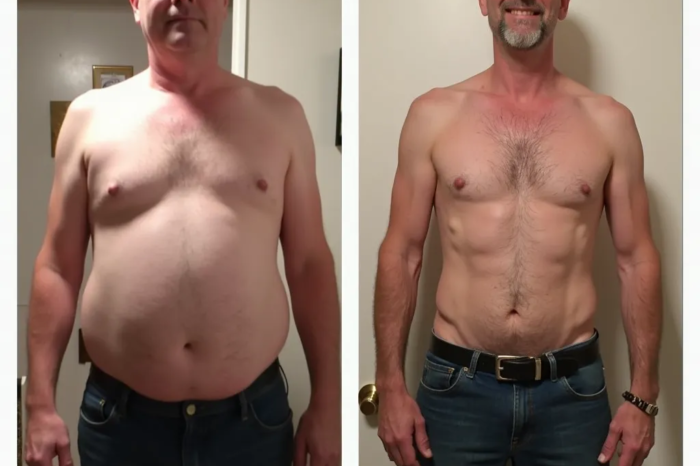How to Create a Calorie Deficit Without Feeling Hungry: Expert Tips

Creating a calorie deficit is essential for weight loss, but it doesn’t have to mean constant hunger pangs. With the right strategies, you can achieve your weight loss goals while feeling satisfied and energized. Here are expert tips on how to create a calorie deficit without feeling hungry.
Focus on Nutrient-Dense, Low-Calorie Foods
One of the most effective ways to reduce calorie intake without increasing hunger is to choose foods that are high in nutrients but low in calories. These include:
- Leafy greens and non-starchy vegetables
- Lean proteins like chicken breast, fish, and tofu
- Fruits, especially berries and citrus
- Whole grains like quinoa and oats
These foods provide essential nutrients and fiber, helping you feel full on fewer calories.
Increase Protein Intake
Protein is known for its satiating effects. It helps you feel full longer and can reduce overall calorie intake. Aim to include a source of protein with each meal and snack. Good options include:
- Greek yogurt
- Eggs
- Lean meats
- Legumes
Studies have shown that high-protein diets can lead to greater feelings of fullness and reduced calorie intake throughout the day.
Prioritize Fiber-Rich Foods
Fiber is another nutrient that promotes satiety. It slows digestion and helps regulate blood sugar levels, keeping you feeling full for longer periods. Include plenty of fiber-rich foods in your diet, such as:
- Vegetables
- Fruits
- Whole grains
- Legumes
Aim for at least 25-30 grams of fiber per day for optimal benefits.
Stay Hydrated
Sometimes, thirst can be mistaken for hunger. Drinking water throughout the day can help you feel full and potentially reduce calorie intake. Try these hydration strategies:
- Drink a glass of water before meals
- Sip on herbal tea between meals
- Eat water-rich foods like cucumbers and watermelon
Proper hydration can also boost metabolism, further supporting your weight loss efforts.
Practice Mindful Eating
Eating mindfully can help you feel more satisfied with smaller portions. This involves:
- Eating slowly and chewing thoroughly
- Paying attention to hunger and fullness cues
- Avoiding distractions like TV or phones while eating
By being more aware of your eating habits, you may naturally consume fewer calories without feeling deprived.
Use Volume Eating Strategies
Volume eating involves consuming large portions of low-calorie foods to feel physically full. This can be achieved by:
- Adding extra vegetables to meals
- Starting meals with a low-calorie soup or salad
- Using zucchini noodles or cauliflower rice as substitutes for higher-calorie options
These strategies allow you to eat a larger volume of food while still maintaining a calorie deficit.
Don’t Skip Meals
While it might seem counterintuitive, skipping meals can actually lead to increased hunger and overeating later. Instead:
- Eat regular, balanced meals
- Include healthy snacks if needed
- Plan your meals in advance to ensure you’re getting adequate nutrition throughout the day
Consistent meal timing can help regulate hunger hormones and prevent extreme hunger that leads to overeating.
Get Adequate Sleep
Poor sleep can disrupt hunger hormones and lead to increased appetite. Aim for 7-9 hours of quality sleep per night. Establish a consistent sleep schedule and create a relaxing bedtime routine to improve sleep quality.
Manage Stress
Stress can lead to emotional eating and increased hunger. Incorporate stress-management techniques such as:
- Regular exercise
- Meditation or deep breathing exercises
- Engaging in hobbies or activities you enjoy
By managing stress, you can reduce the likelihood of stress-induced overeating.
Consider Intermittent Fasting
Some people find that intermittent fasting helps them create a calorie deficit without feeling constantly hungry. Common methods include:
- 16/8 method (fasting for 16 hours and eating within an 8-hour window)
- 5:2 diet (eating normally for 5 days and restricting calories for 2 non-consecutive days)
However, it’s important to consult with a healthcare professional before starting any fasting regimen. Creating a calorie deficit doesn’t have to mean constant hunger. By implementing these expert tips, you can achieve your weight loss goals while feeling satisfied and energized. Remember, sustainable weight loss is about making long-term lifestyle changes, not short-term deprivation. Always consult with a healthcare professional or registered dietitian before making significant changes to your diet or exercise routine.









